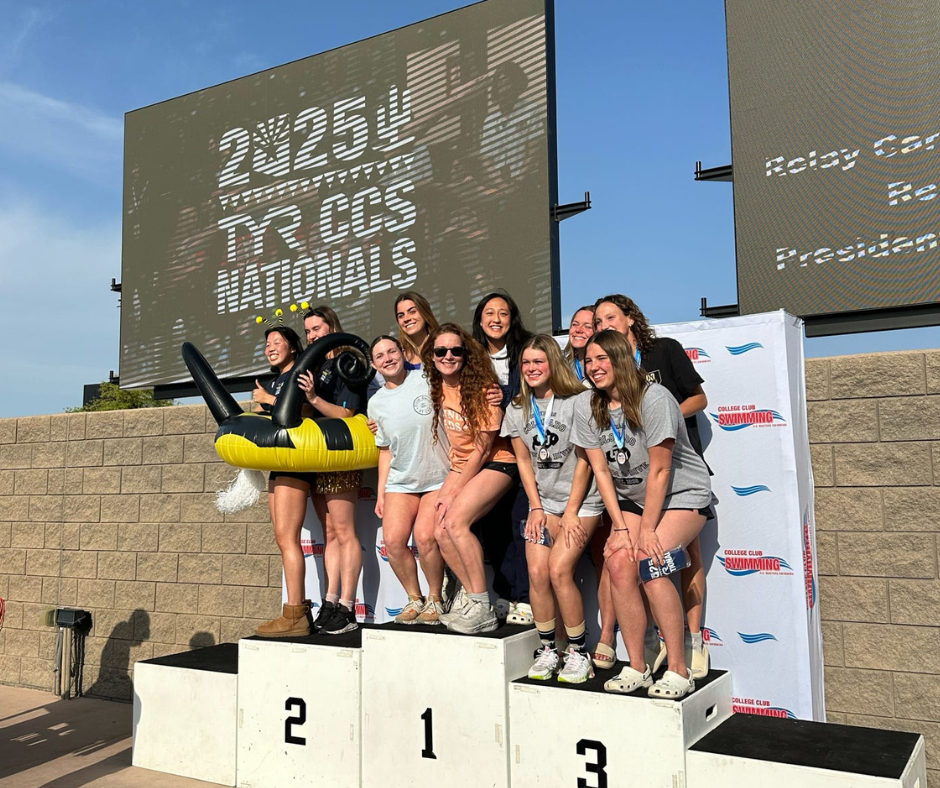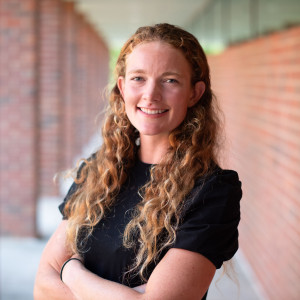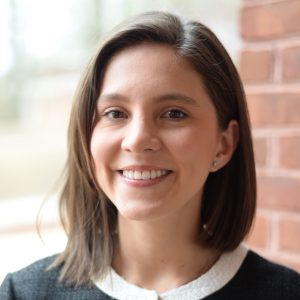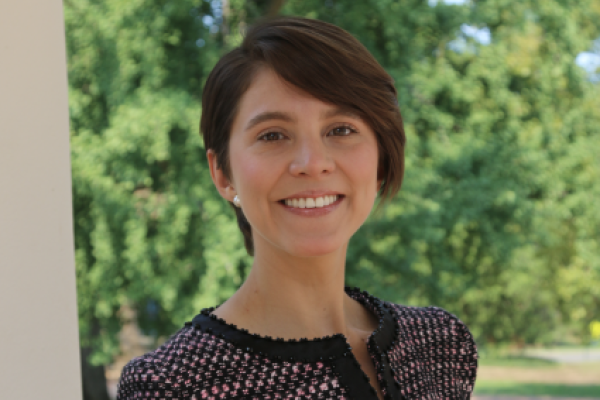
Ph.D. Student Discovers Her Best Ideas Surface in the Pool

When I started my Ph.D. in Data Science at the University of Virginia, I never expected that part of this journey would involve joining the university’s club swim team. And yet, this past March, I found myself in Arizona standing behind the blocks at the 2025 College Club Swimming National Championship—surprised, grateful, and a little amazed at how things had come full circle.
I began swimming competitively at the age of six and eventually would go on to compete as a varsity Division II athlete at West Chester University from 2015 to 2019. By the time I graduated, I felt like I had ended on a high note—posting strong season bests and helping the women’s team secure a third-place finish at NCAA DII Nationals. Like most college swimmers, though, I stepped away from the sport after graduation. Swimming had been both deeply rewarding and incredibly demanding. My team used to train 11 times a week, around 20 hours a week, which meant doubles most days. I still remember squeezing out every extra minute of sleep before dragging myself out of bed to make it just in time for the 7 a.m. swim practice.

Fast forward to 2023: I had just begun my first year in UVA’s Ph.D. program at the School of Data Science when I decided to check out the college club swim team. I thought it might be a good way to stay active and meet new people. Around this time, I learned that the UVA varsity swim team—whose women’s team continues to dominate at NCAA Nationals and at the Olympic level—had ties to the School of Data Science, specifically through Professor Ken Ono, whose analytical insights have supported their record-breaking performance. It was exciting to see research from the school I was a part of having a real impact in the pool.
At first, I had no expectations with sticking with it. But I kept going. First occasionally, then regularly. I made friends on the team who welcomed me with open arms and shared the same joy for swimming. I found that adding swim practices into my weekly routine gave me structure and balance that directly contributed to my academics. It pulled me away from screens and gave me a space to think. Some of my best research ideas actually came to me during long swim sets.
Then, this past March I pulled out one of my old college tech suits and traveled with the UVA club swim team to Arizona to compete at the 2025 College Club Swimming National Championship. To my surprise, I placed in the top four of all eight events I competed in, which included both individual races and relays. Even more unexpected, I posted five season best times and came remarkably close to my lifetime bests in several events. Getting to experience the joy of racing, cheering on teammates, and seeing what I still had left in me competitively without the pressure to win made this experience all the more meaningful.
Looking back, I am grateful I gave myself permission to return to the sport on my own terms. Swimming no longer feels like something I have to do—it feels like something I get to do. The flexibility to train when I want, the support of club teammates who simply enjoy the sport, and the absence of pressure to perform have all helped me reconnect with the part of myself that once lived on a pool deck. This experience has enriched my academic life too. It’s given me space to think creatively, maintain balance, and find momentum in my research in unexpected ways. I’m still not sure where swimming fits into my long-term plans—but for now, it’s a reminder that progress doesn’t always mean reinventing yourself. Sometimes, it just means returning with a better mindset.

"I've had the chance to work with Lizzy as a graduate instructor. She exemplifies how passion goes beyond academics. Her dedication isn't just limited to her studies; it extends to her athletic pursuits as well. Lizzy has managed to handle the demands of a PhD program with great skill," said Ph.D. in Data Science student, Karolina Naranjo-Velasco.
"In the classes where I worked with her, she stood out for her critical thinking. This quality will undoubtedly help her succeed in her doctoral work. Lizzy also demonstrates the creativity and balance needed for growth. Her story is a compelling example of how finding an outlet that offers both personal joy and a structured routine can enrich academic life, leading to unexpected insights and sustained momentum.
It's been a pleasure to work with her."



